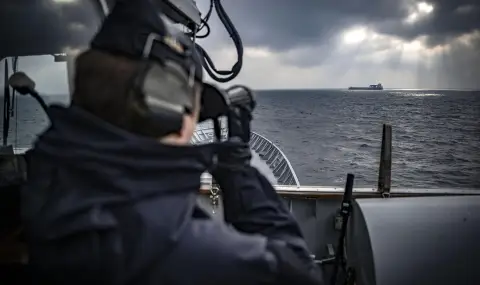As Russia and the United States discuss the future of the war in Ukraine, the Baltic countries are stepping up their preparations for a possible military conflict with Moscow amid concerns that the Kremlin is preparing for war with NATO, France 24 reports, quoted by Focus.
Following recent talks between Washington and Moscow in Saudi Arabia over Ukraine, the Baltic states have published a series of intelligence reports warning of potential intentions by Russian President Vladimir Putin to expand military action in Europe.
Estonia's foreign intelligence service has signaled that Moscow is expanding its armed forces in a way that indicates preparations for "potential future war with NATO". Danish intelligence also predicts that Russia may be able to start a "large-scale war" in Europe within five years.
Increased tensions and military preparations
According to France 24, the weakening of transatlantic ties between Europe and the US is becoming increasingly apparent. Following criticism of Europe by US Vice President J.D. Vance at the Munich Security Conference and the Russian-American talks on Ukraine, speculation has emerged that the US under Donald Trump may consider withdrawing NATO troops from the Baltic states.
"It seems that if the transatlantic bridge is not collapsing, then it is seriously damaged", commented Dr. Maris Anjans, director of the Center for Geopolitical Studies in Riga, Latvia.
He highlights the significant difference in the approach of the two US administrations: "Biden traveled to Kiev during the war, and now Trump is ready to go to Moscow. This is a big turn of events."
Baltic States: On High Alert
The northern Baltic states (Denmark, Estonia, Finland, Iceland, Latvia, Lithuania, Norway and Sweden) have been among the most active supporters of Ukraine since the beginning of the Russian invasion in 2022. At the same time, Latvia, Lithuania and Estonia, former Soviet republics that share a border with Russia, are increasing their military spending and defense investments.
An example of this is Lithuania, which restored conscription, doubled the number of military personnel and increased its defense spending to 3.45% of GDP – one of the highest levels in NATO.
"If a Russian invasion were to happen tomorrow, we are much better prepared than we were a decade ago," Dr. Anjans said. However, he warned that "there is still a critical air defence gap".
According to a Latvian intelligence report published this week, the threat of direct military conflict between Russia and NATO in the next 12 months remains "low" as long as Moscow remains engaged in the war in Ukraine.
Russia is building up its military might
Since the start of the conflict in Ukraine in 2022 Russia has temporarily suspended some of its military plans on its northern borders. However, analysts warn that if the war in Ukraine ends, Moscow could focus on rebuilding its military power.
"Russia will use this period to rebuild its military organization," says Katarzyna Zisk, a professor at the Norwegian Institute for Defense Studies.
The Russian president has already taken steps to expand his army – in September 2023, Putin ordered an increase in the number of military personnel by 180,000, bringing the size of the Russian armed forces to 1.5 million – the second largest army in the world after China.
According to Latvian intelligence, within five years Russia will restore its military power to a level that could pose a serious threat to NATO.
"Moscow has been systematically pursuing its goals since the early 2000s – expanding the sphere of influence and undermining the dominant role of the United States in Europe," adds Zisk.
Hybrid warfare and cyberattacks
Despite increasing military investment in the Baltic states, analysts warn that Moscow may prefer hybrid methods of pressure to direct military invasion.
"Russia will not necessarily resort to military conflict, but it is a scenario that cannot be ruled out," says Dr. Anjans.
In response, Latvia, Estonia, and Finland are building defensive infrastructure along their borders, including anti-tank barriers and fortified facilities. In addition, the three Baltic states recently broke their electricity dependence on Russia by successfully connecting to the European electricity grid.
The Baltic Sea is also becoming a zone of increasing tension. In recent months, several underwater telecommunications and power cables have been damaged under unclear circumstances. Although Moscow denies involvement, a number of analysts and officials accuse it of "hybrid warfare".
An example of the growing instability is the wave of pro-Russian vandalism in Latvia, including the throwing of a Molotov cocktail at the Latvian Occupation Museum.
"Russia is using the full spectrum of tools for destabilization – from cyberattacks and propaganda to sabotage", commented Prof. Zisk.
She warns that the Kremlin will continue to use political, economic and informational means to influence the region, and in certain circumstances a military scenario cannot be ruled out.
"Russia has repeatedly proven that it is ready to use force to achieve its goals," the professor concludes.
